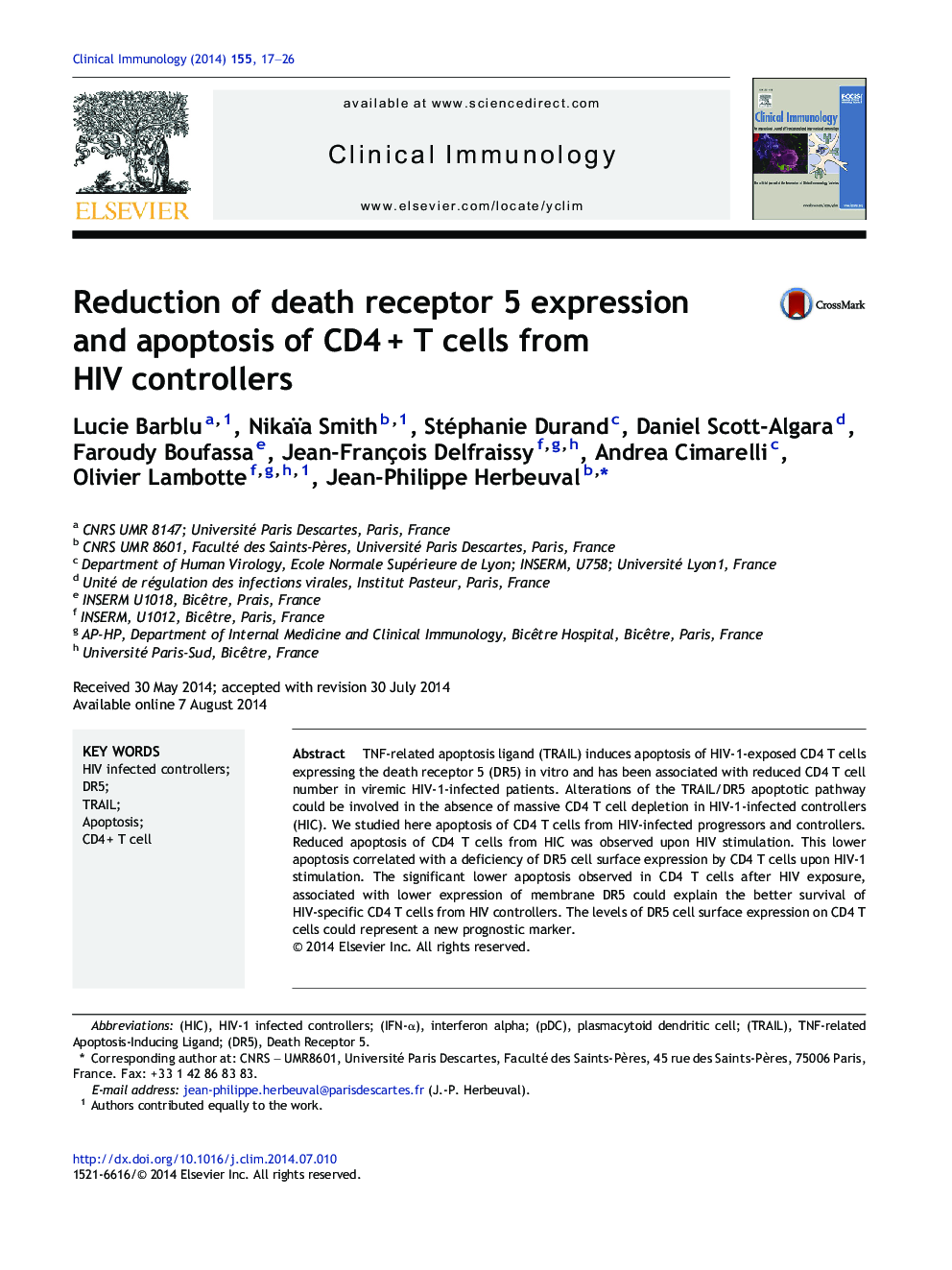| Article ID | Journal | Published Year | Pages | File Type |
|---|---|---|---|---|
| 6087355 | Clinical Immunology | 2014 | 10 Pages |
â¢CD4 T cells from HIC do not undergo apoptosis.â¢HIC CD4 T cells are deficient in DR5 cell surface expression after HIV1 stimulation.â¢DR5 silencing of HIV1-activated T cells from healthy donors abolished cell death.â¢Levels of DR5 cell surface expression on T cells represents a new prognostic marker.
TNF-related apoptosis ligand (TRAIL) induces apoptosis of HIV-1-exposed CD4 T cells expressing the death receptor 5 (DR5) in vitro and has been associated with reduced CD4 T cell number in viremic HIV-1-infected patients. Alterations of the TRAIL/DR5 apoptotic pathway could be involved in the absence of massive CD4 T cell depletion in HIV-1-infected controllers (HIC). We studied here apoptosis of CD4 T cells from HIV-infected progressors and controllers. Reduced apoptosis of CD4 T cells from HIC was observed upon HIV stimulation. This lower apoptosis correlated with a deficiency of DR5 cell surface expression by CD4 T cells upon HIV-1 stimulation. The significant lower apoptosis observed in CD4 T cells after HIV exposure, associated with lower expression of membrane DR5 could explain the better survival of HIV-specific CD4 T cells from HIV controllers. The levels of DR5 cell surface expression on CD4 T cells could represent a new prognostic marker.
